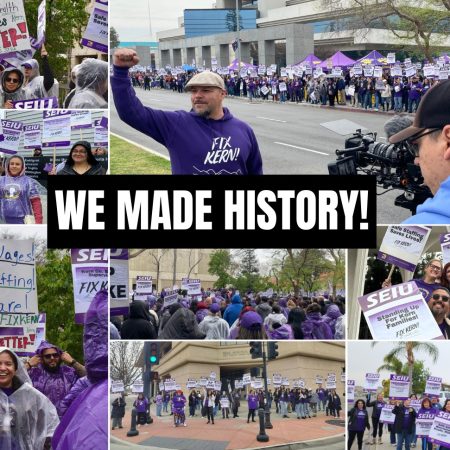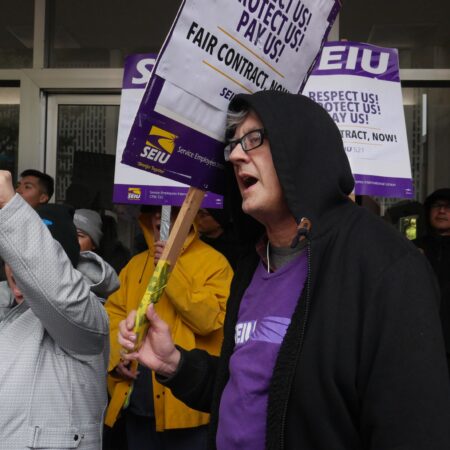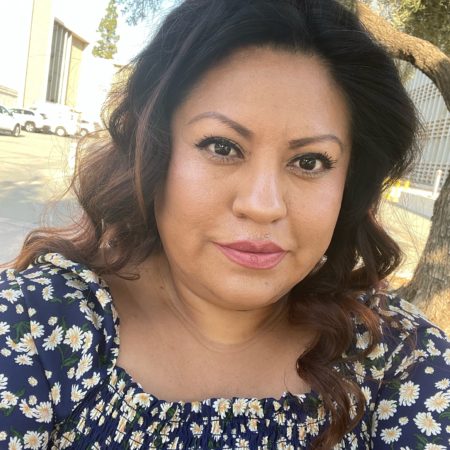Governor Newsom signed into law on February 23, 2021, a bill that will help keep the doors of family child care centers open to essential workers, support the distance learning needs of children, and allow family child care providers to support their own families given the increasing costs of COVID-19 precautions. Having spent the last year sounding alarms about COVID-19’s devastating impact on child care providers, members and leaders of Child Care Providers United (CCPU) responded to Governor Newsom’s signature on this urgently-needed legislation AB 82:
“This agreement that child care providers fiercely fought to secure is a temporary lifeline for our workforce, which overwhelmingly consists of women of color, and the families we serve, many of whom are supported by essential workers. It gives providers the confidence to keep our businesses running, knowing we can still survive if a COVID-19 exposure forces a temporary closure.”
Christine Benevedes, a provider from Tulare County and a member of CCPU’s negotiations team
“With so many of my parents working essential jobs, closures are a constant risk. Simultaneously, these parents cannot do their jobs without somewhere safe to send their children. I’m proud child care workers came together to fight for this agreement, so we can continue to provide this vital support for California families.”
Lucre-ce Lester, a provider from Contra Costa County and a member of CCPU’s negotiations team
“40,000 child care providers spanning the entire state wrote letters, made phone calls, and caravaned to get elected officials’ attention over the last year because our child care system was in crisis, and COVID-19 threatened to break us. We commend Governor Newsom and legislative leaders for hearing and responding to our members’ voices, finally taking action to support these essential workers’ livelihoods, and enabling them to feed their own families. But, as we all know, there’s still a lot more to do to support providers and California’s families. We are hopeful for more progress and look forward to continuing to partner with the State to meet these needs.”
Max Arias, Chairperson of CCPU
“California’s child care providers have been waiting far too long for basic relief from this devastating pandemic. From increased access to PPE and cleaning supplies to additional paid closure days, this is a desperately needed step from the state to do what’s right for a workforce made up of women of color making below minimum wage while taking on significant expenses. We look towards our partnership with the state to ensure these critical funds get distributed swiftly to our frontline workers.”
Johanna Puno Hester, Vice Chairperson of CCPU
“Following nearly two decades of organizing, this agreement shows the power providers’ voices have when they come together, unified around critical issues. I look forward to the state continuing to partner with all child care providers as they negotiate their first contract, tackling key issues like provider pay and family access to care that have festered for far too long.”
Riko Mendez, Secretary-Treasurer of CCPU
The full text of the bill is available here.
With this significant victory achieved by our unity, CCPU members will use the streamlined process agreed to with the state to continue addressing the many challenges providers and families still face related to COVID-19, including ensuring providers who are closed can reopen and covering family fees for all families. We will also continue to negotiate our first collective bargaining agreement with the State of California, finally addressing issues like provider compensation and benefits, training and professional development, and other foundational priorities. AB 82 represents a critical first step. We hope to continue to work collaboratively with the State of California to build a 21st-century, high-quality child care system in California that meets every child, parent, and early educator’s needs.



